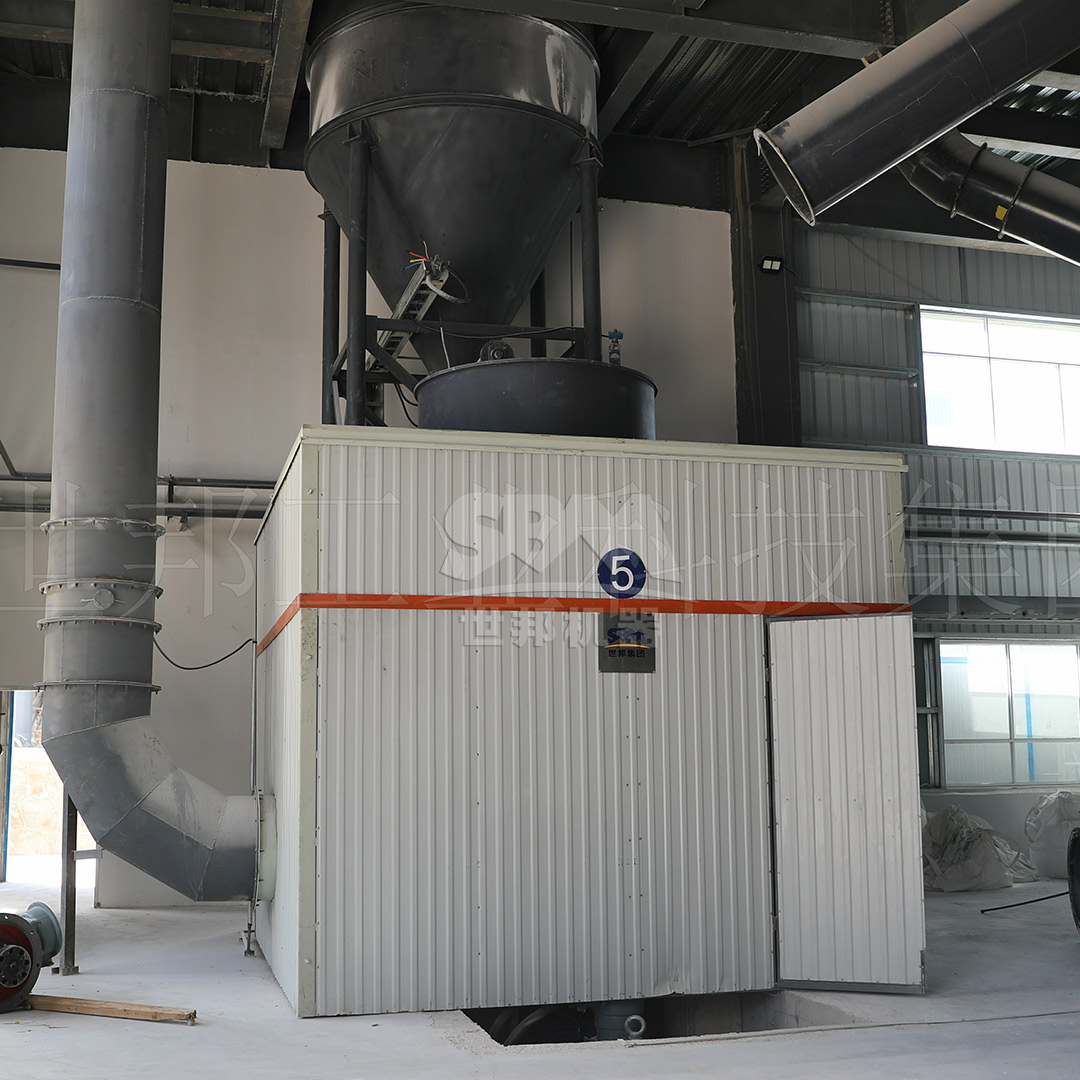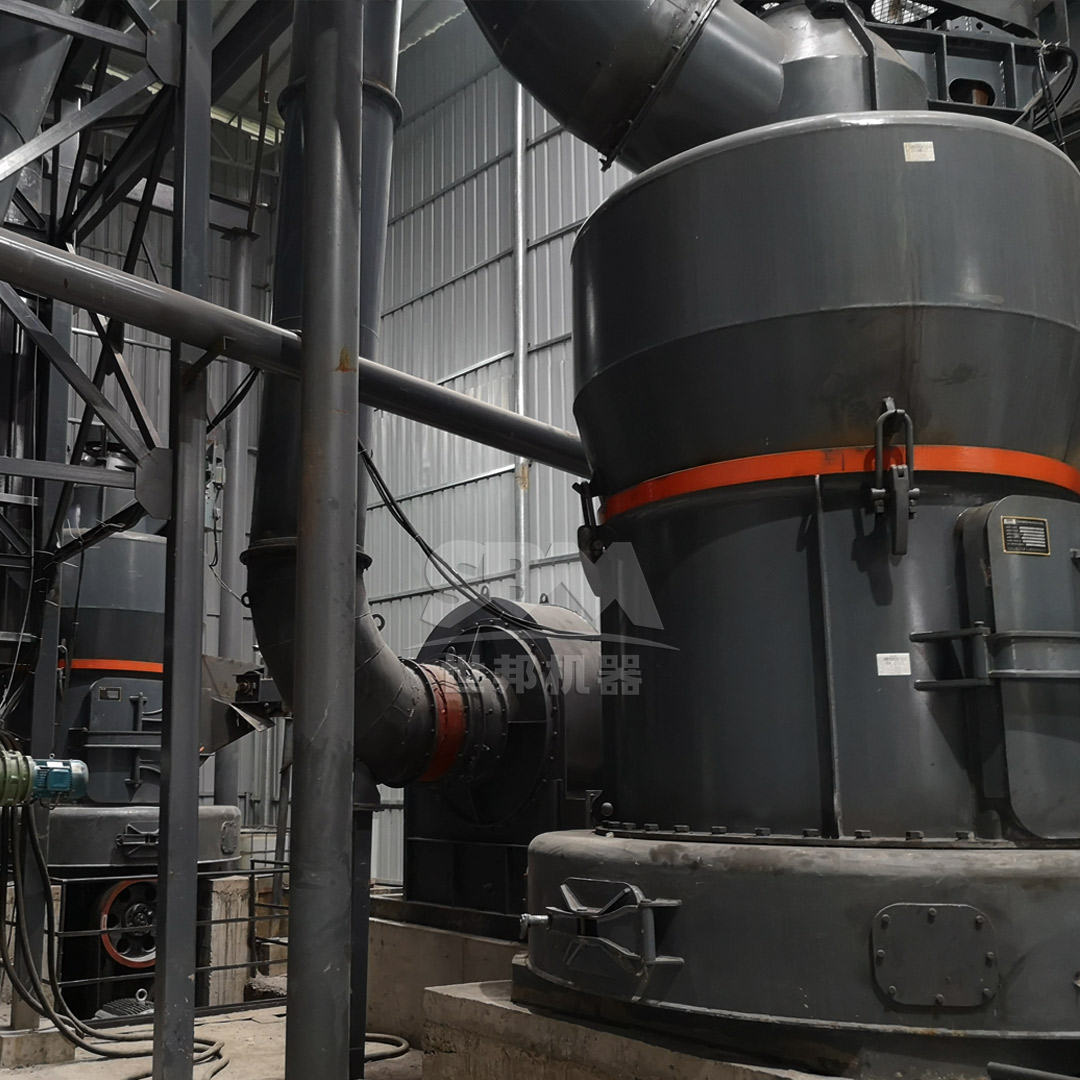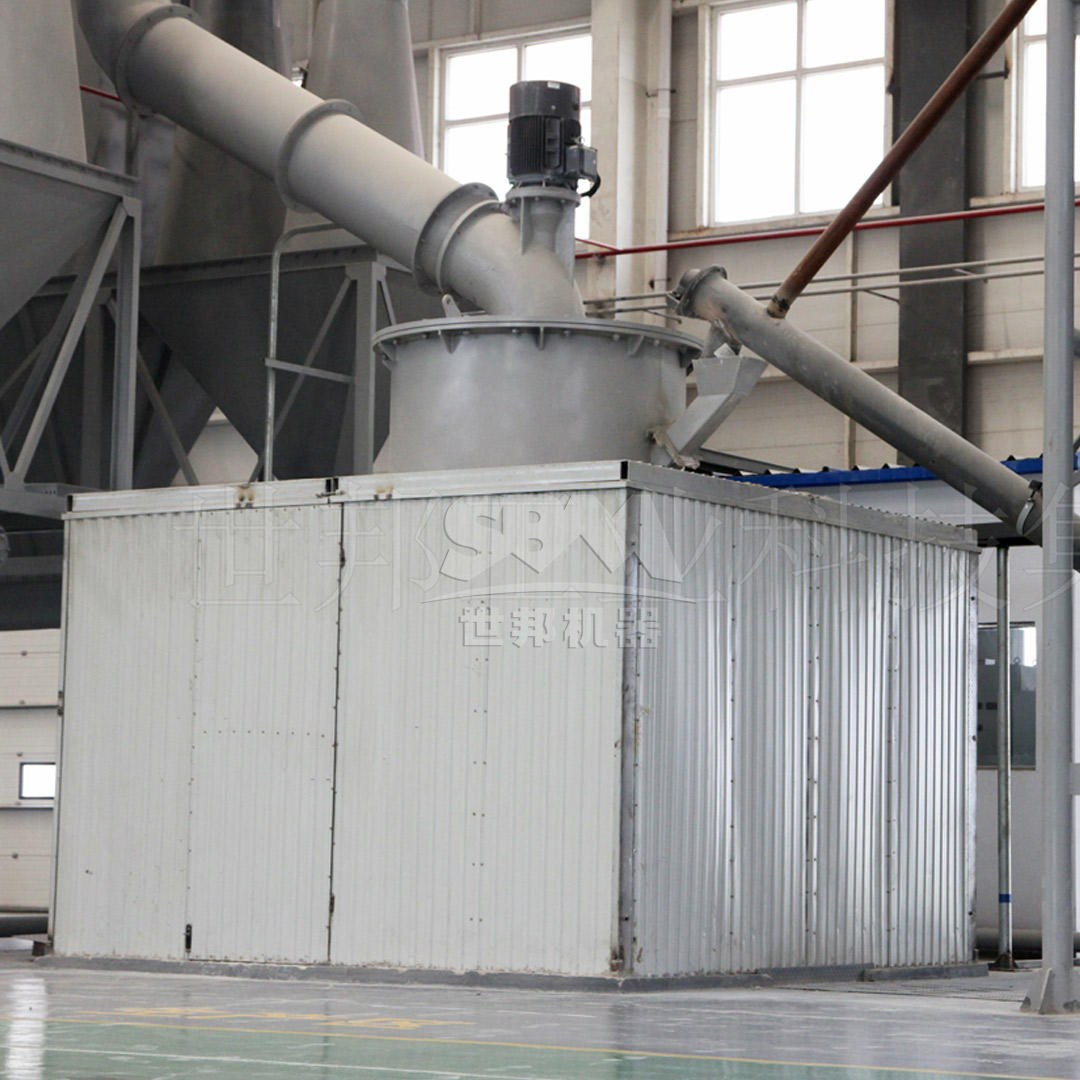In modern industrial processing, the demand for fine and ultrafine powders has grown exponentially across various sectors. Superfine mills have become indispensable equipment for achieving the precise particle size distributions required in advanced manufacturing processes. These specialized grinding systems are engineered to produce powders with exceptional fineness, narrow particle size distribution, and high purity – characteristics that conventional milling equipment often struggles to achieve consistently.
The selection of an appropriate superfine milling solution depends on multiple factors including the material properties, required output specifications, production capacity, and economic considerations. This comprehensive analysis explores the key applications where superfine mills deliver optimal performance and provides guidance on selecting the right technology for specific processing requirements.
Superfine milling represents the pinnacle of size reduction technology, capable of producing powders with particle sizes typically ranging from several microns down to sub-micron levels. Unlike conventional grinding equipment that primarily relies on impact and attrition forces, superfine mills employ sophisticated mechanical and aerodynamic principles to achieve precise particle size control.
The technological evolution in superfine milling has been driven by the increasing demand for high-value powders in advanced materials, pharmaceuticals, fine chemicals, and specialized industrial applications. Modern superfine mills incorporate advanced classification systems, precise control mechanisms, and specialized wear-resistant materials to maintain consistent performance while processing challenging materials.
Key technological advancements in superfine milling include:
The development of advanced materials represents one of the most demanding applications for superfine milling technology. Materials such as graphene, carbon nanotubes, advanced ceramics, and composite materials require precise particle size distributions to achieve their exceptional properties. In these applications, superfine mills must not only achieve the required fineness but also preserve the material’s structural integrity and prevent contamination.
For ceramic powders, superfine milling enables the production of uniform particles that facilitate better sintering behavior and improved final product density. In composite materials, the dispersion of reinforcing phases within matrix materials requires powders with controlled particle size and morphology. The SCM Ultrafine Mill excels in these applications with its ability to produce powders ranging from 325 to 2500 mesh (D97 ≤ 5μm) while maintaining material purity through its enclosed grinding system.

In the pharmaceutical industry, superfine milling plays a crucial role in enhancing drug bioavailability through particle size reduction. The increased surface area of finely milled active pharmaceutical ingredients (APIs) significantly improves dissolution rates and absorption efficiency. Pharmaceutical applications demand not only precise particle size control but also strict adherence to Good Manufacturing Practice (GMP) standards, including cleanability, documentation, and validation capabilities.
Superfine mills designed for pharmaceutical applications incorporate specialized features such as:
The MTW Series Trapezium Mill offers particular advantages in pharmaceutical intermediate processing with its combination of precise particle size control (30-325 mesh), high efficiency, and cleanable design. The mill’s advanced classification system ensures consistent particle size distribution critical for pharmaceutical uniformity.
The fine chemical industry utilizes superfine milling for producing high-value additives, pigments, catalysts, and specialty chemicals. In these applications, particle size directly influences product performance characteristics such as color strength, catalytic activity, dispersion stability, and reactivity. Chemical processors often require mills capable of handling heat-sensitive materials, explosive compounds, or corrosive substances.
Specialized superfine mills for chemical applications feature:
For chemical applications requiring moderate fineness with high throughput, the MTW Series Trapezium Mill provides an excellent balance of performance and efficiency. With capacities reaching 45 tons per hour and the ability to process materials up to 50mm in feed size, this mill suits large-scale chemical production while maintaining product quality through its precision classification system.

Industrial minerals represent one of the largest application areas for superfine milling technology. Minerals such as calcium carbonate, talc, kaolin, barite, and gypsum require precise particle size control to meet specifications for various industrial applications. The value of these minerals increases significantly with decreasing particle size and improved particle size distribution.
In mineral processing, superfine mills must handle abrasive materials while maintaining consistent product quality and operating efficiency. Key considerations include wear resistance, energy consumption, and classification efficiency. The SCM Ultrafine Mill addresses these challenges through its specialized design featuring durable grinding components, efficient classification, and energy-saving operation that reduces power consumption by 30% compared to conventional jet mills.
Mineral applications benefit particularly from the SCM series’ ability to maintain stable operation with materials of varying hardness and moisture content. The mill’s intelligent control system automatically adjusts operating parameters to maintain consistent product fineness despite variations in feed material characteristics.
The food industry employs superfine milling for producing specialty ingredients, functional foods, and nutraceuticals. Applications include milling of spices, production of instant products, creation of microencapsulated ingredients, and processing of dietary supplements. Food-grade superfine mills must comply with stringent hygiene standards and preserve the nutritional and organoleptic properties of food materials.
Critical requirements for food applications include:
Superfine mills with advanced cooling systems and precise temperature control are essential for heat-sensitive food materials. The enclosed design of modern superfine mills also prevents contamination and protects product purity throughout the milling process.
The physical and chemical properties of the material to be processed fundamentally influence mill selection. Key material characteristics include:
| Material Property | Mill Selection Consideration |
|---|---|
| Hardness | Determines wear resistance requirements |
| Abrasiveness | Influences material selection for grinding components |
| Moisture Content | Dictates drying requirements and mill configuration |
| Heat Sensitivity | Determines need for cooling systems |
| Chemical Reactivity | Influences material compatibility and safety systems |
For extremely hard or abrasive materials, mills with specialized wear protection, such as the SCM Ultrafine Mill with its special material roller and grinding ring, provide extended service life and reduced maintenance requirements.
The required product fineness and particle size distribution represent critical selection criteria. Different mill types exhibit distinct performance characteristics across the particle size spectrum:
The SCM Ultrafine Mill stands out for applications requiring the finest powders, capable of achieving particle sizes as fine as 5μm (D97) with excellent uniformity. Its vertical turbine classifier provides precise size cuts without coarse particle contamination.
Production requirements significantly influence mill selection, with considerations including:
For high-capacity requirements, the MTW Series Trapezium Mill offers processing capabilities up to 45 tons per hour, making it suitable for large-scale industrial operations. The availability of multiple models within both the SCM and MTW series enables selection of appropriately sized equipment while maintaining consistent technology and operating principles across different capacity requirements.
The total cost of ownership for superfine milling equipment encompasses multiple factors beyond the initial purchase price:
| Cost Component | Considerations |
|---|---|
| Capital Investment | Equipment cost, installation, auxiliary systems |
| Operating Costs | Power consumption, wear parts, maintenance labor |
| Product Quality | Yield, product value enhancement, consistency |
| Reliability | Uptime, production losses, maintenance requirements |
The energy efficiency of modern superfine mills significantly impacts operating economics. The SCM Ultrafine Mill demonstrates exceptional efficiency, consuming 30% less energy than conventional jet mills while delivering twice the output capacity. This combination of high efficiency and superior performance provides compelling economic advantages for demanding applications.

For applications requiring the finest powders with tight particle size distributions, the SCM Ultrafine Mill represents the pinnacle of superfine milling technology. This advanced mill system combines high-efficiency grinding with precision classification to produce powders ranging from 325 to 2500 mesh (D97 ≤ 5μm).
The technological advantages of the SCM Ultrafine Mill include:
With models ranging from the SCM800 (0.5-4.5 ton/h) to the SCM1680 (5.0-25 ton/h), the series provides solutions for various capacity requirements while maintaining consistent product quality across the entire range.
For applications requiring high throughput with fine to medium-fine particle sizes, the MTW Series Trapezium Mill delivers exceptional performance and efficiency. This advanced mill system processes materials up to 50mm in feed size and produces powders from 30 to 325 mesh with capacities reaching 45 tons per hour.
Key technological features include:
The MTW series includes multiple models from MTW110 (3-9 ton/h) to MRN218 (15-45 ton/h), providing solutions for various production requirements across mineral processing, chemical production, and industrial applications.
The evolution of superfine milling technology continues to address emerging industry requirements through several key trends:
Advanced control systems incorporating artificial intelligence and machine learning algorithms are transforming superfine mill operation. These systems optimize milling parameters in real-time, predict maintenance requirements, and ensure consistent product quality despite variations in feed material characteristics. The integration of Industrial Internet of Things (IIoT) technologies enables remote monitoring, predictive maintenance, and data-driven optimization.
Increasing focus on sustainability drives development of more energy-efficient milling technologies. Advanced designs reduce specific energy consumption while maintaining or improving product quality. The SCM Ultrafine Mill exemplifies this trend with its 30% reduction in energy consumption compared to conventional jet mills. Additional sustainability initiatives include reduced water consumption, minimized waste generation, and extended component life through advanced materials and designs.
The integration of multiple processing steps within single equipment platforms represents an emerging trend. Combined drying-grinding-classification systems reduce equipment footprint, minimize energy consumption, and simplify process flows. These integrated systems particularly benefit heat-sensitive materials and applications requiring strict moisture control.
Superfine milling technology plays an increasingly critical role in modern industrial processes across diverse sectors including advanced materials, pharmaceuticals, fine chemicals, minerals, and food processing. The selection of appropriate superfine milling equipment requires careful consideration of material characteristics, particle size requirements, production capacity, and economic factors.
For applications demanding the finest powders with tight particle size distributions, the SCM Ultrafine Mill provides exceptional performance with its ability to produce powders as fine as 5μm (D97) while maintaining high efficiency and operational reliability. For high-capacity requirements with fine to medium-fine specifications, the MTW Series Trapezium Mill delivers outstanding throughput and efficiency.
As industrial requirements continue to evolve toward finer specifications, higher purity, and improved efficiency, superfine milling technology will remain at the forefront of process innovation, enabling new applications and enhancing product performance across multiple industries.